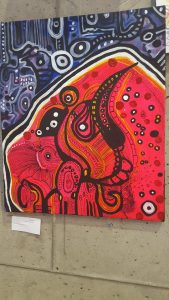Last week, I had the pleasure of attending the Rose Cafe hosted by Dr. Nick Cheesman, from Australian National University, and his colleague, Pornpen, a human rights activist from Thailand. They explored the use of torture, which Cheesman argued is never justifiable, as a “ticking time bomb” scenario never actually exists, and argued that we should try to find the reasons why it still happens.
One hypothesis, which Cheesman and Pornpen hinted at, as evidenced by Pornpen’s work in the South of Thailand, is this idea that torture is a sort of satisfying ritualization, or a catharsis, which attacks and issue without really solving it. Thus, victims might be interrogated and tortured for a crime they might not have even committed, simply because this provides immediate satisfaction. This relates to the structure of power, or perhaps a desire to express that through the inhumane subjugation of another human being.
I think we need to take a long look at our own society, which often takes a cavalier “let em have it” attitude towards victims of torture in this country, ascribing this to the idea that they are terrorists or criminals. Why do we have this attitude toward our fellow human beings? Is it because we don’t stop and think, or is there something far more sinister in how we all view the world?

